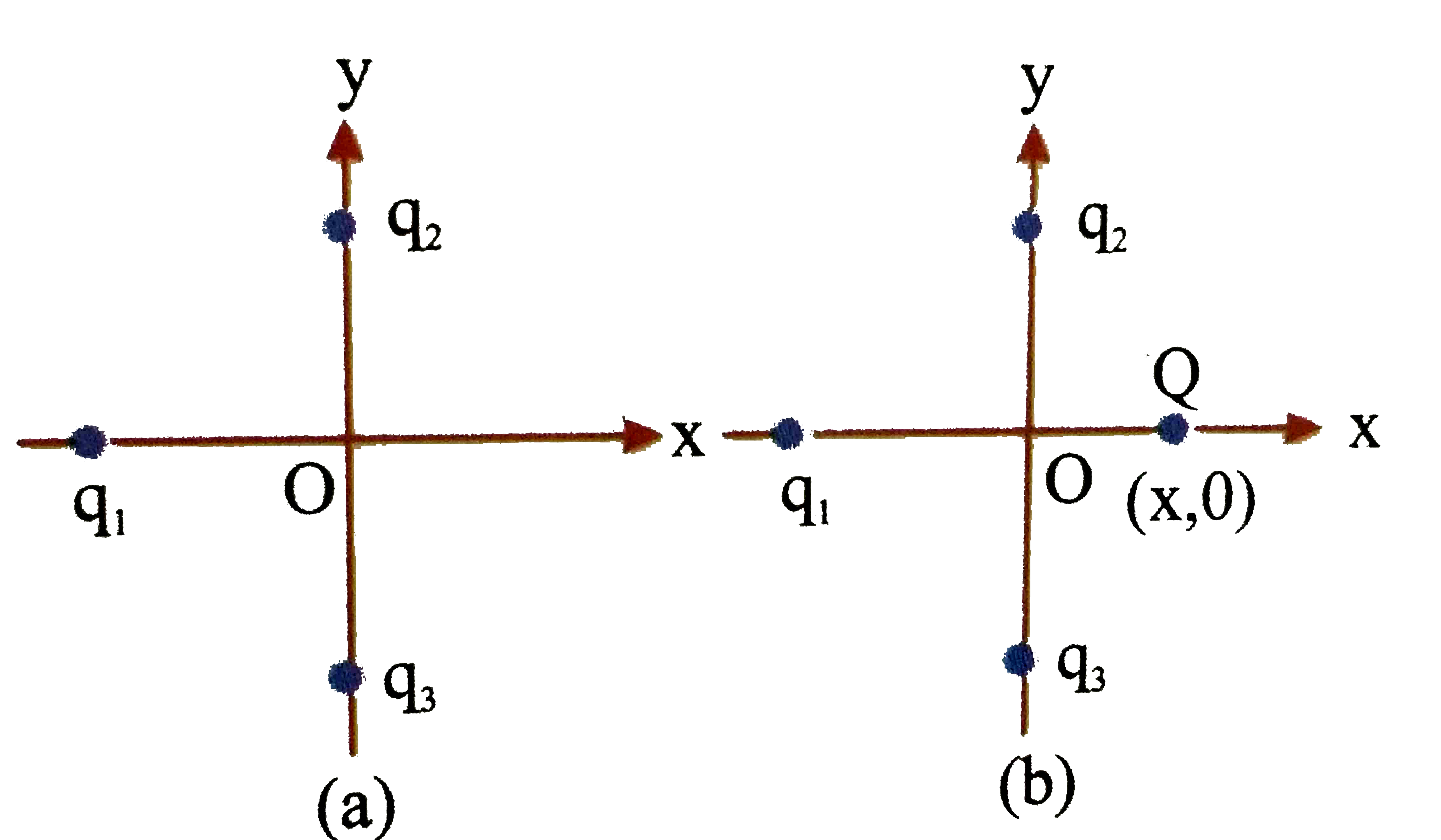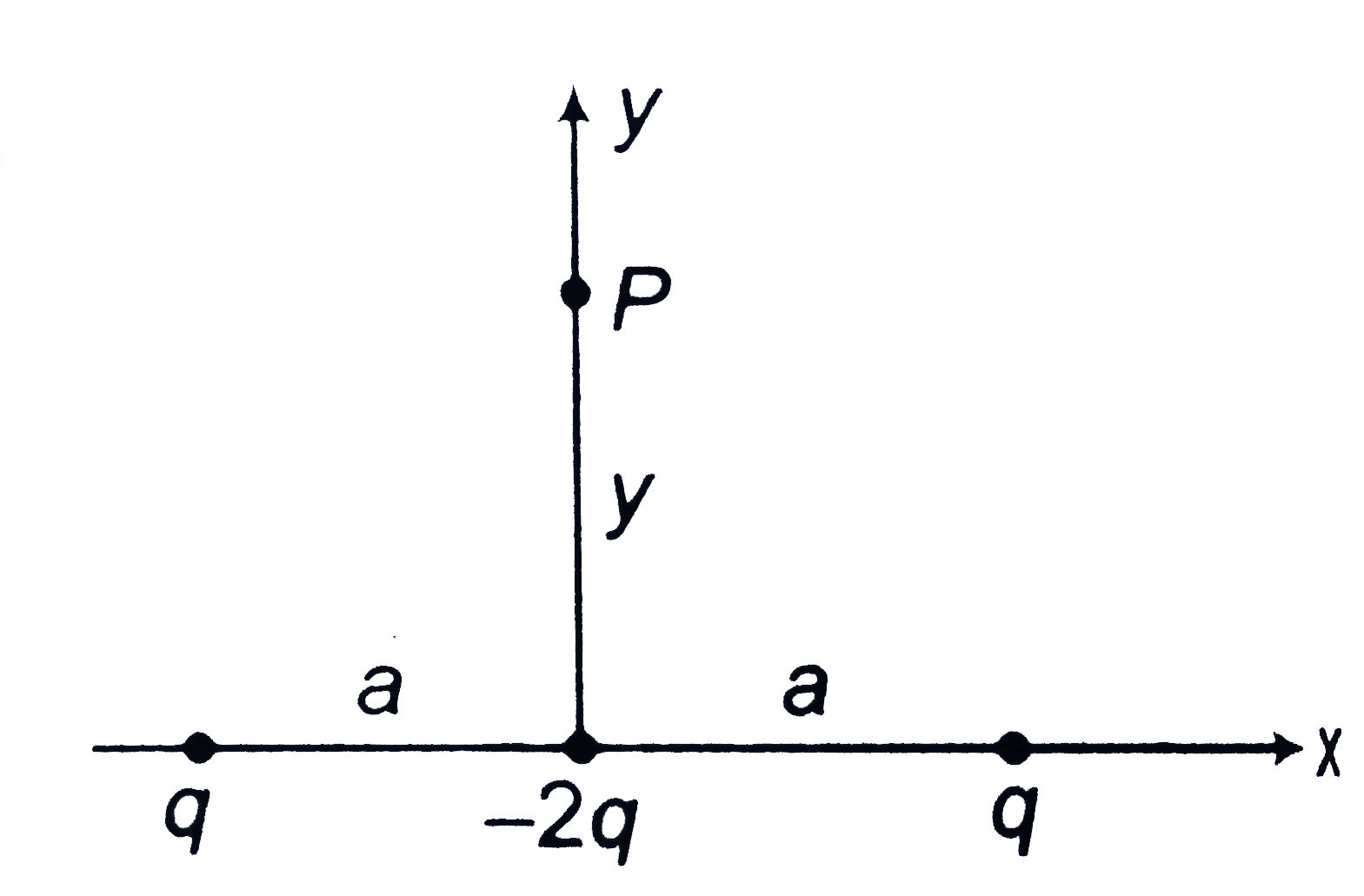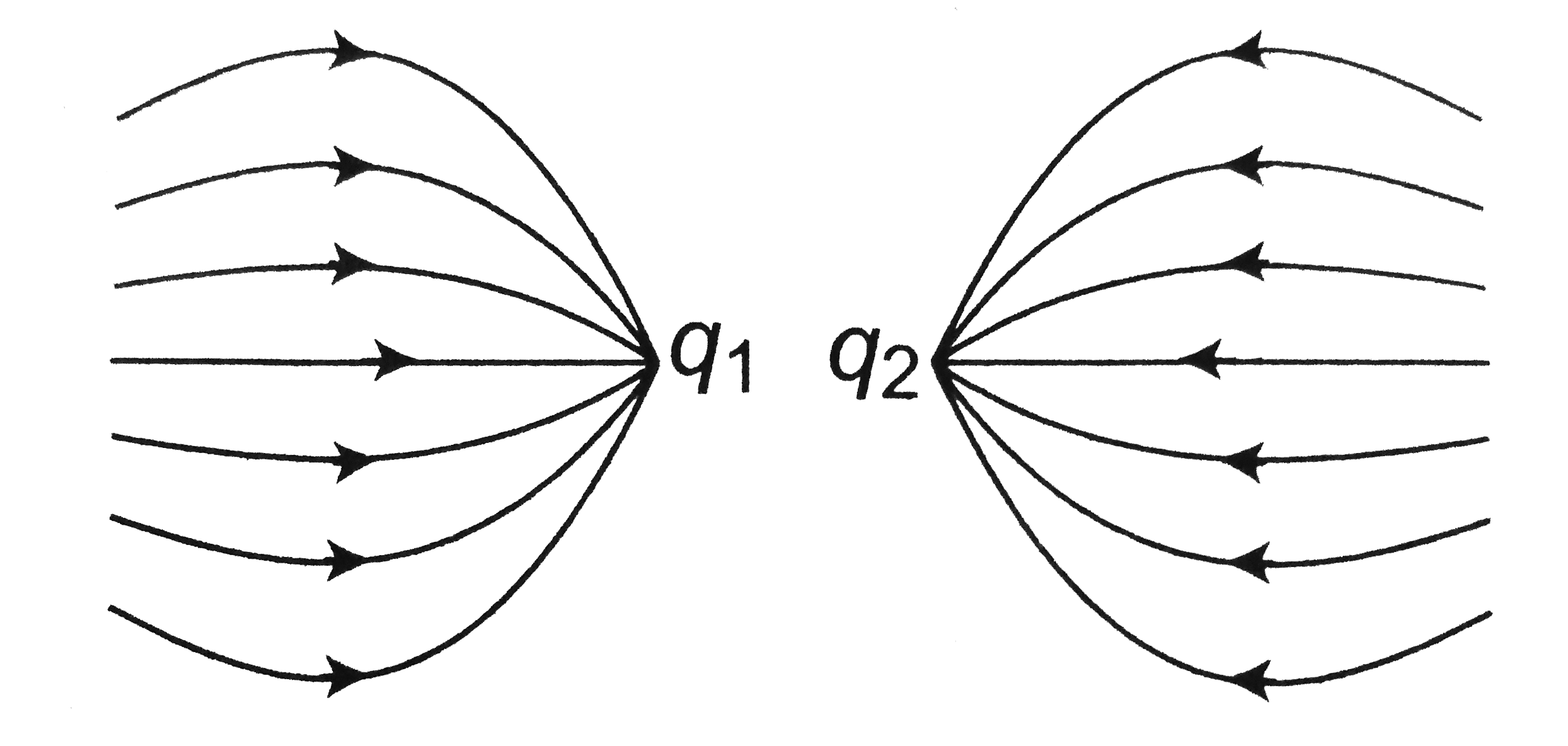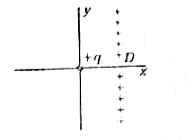In figure two positive charges q2 and q1 fixed along the y-axis ,exert a net electric force in the +x direction on a charge q1 fixed along the x−aξs if a positive charge Q is added at (x,0) the force on q1

shall increase along the positive x-axis
shall decrease along the positive x-axis
shall point along the negative x-axis
shall increase but the direction changes because of the intersection of Q and q2 and q3
The correct Answer is:A
Since positive charges q2 and q3 exert a net force in the +x direction on the charge q1 fixed along the x−aξs the charge q1 is negative.Obviously due to addition of positve charge Q at (x,0) the force on −q shall increase along the positve x-axis

Topper's Solved these Questions
- ELECTROSTATICS AND GAUSS LAWBook:NARAYNAChapter:ELECTROSTATICS AND GAUSS LAWExercise:Level V
Explore 93 Videos
- ELECTROSTATICS AND GAUSS LAWBook:NARAYNAChapter:ELECTROSTATICS AND GAUSS LAWExercise:Passage I
Explore 3 Videos
- ELECTROSTATICS AND GAUSS LAWBook:NARAYNAChapter:ELECTROSTATICS AND GAUSS LAWExercise:Level 3
Explore 22 Videos
- ELECTROSTATIC POTENTIAL AND CAPACITANCEBook:NARAYNAChapter:ELECTROSTATIC POTENTIAL AND CAPACITANCEExercise:ADDITIONAL PROBLEMS
Explore 14 Videos
- EXPERIMENTAL PHYSICSBook:NARAYNAChapter:EXPERIMENTAL PHYSICSExercise:Comprehension type
Explore 6 Videos
Similar Questions
A positive point charge q1 is placed at (a,0) and another positive point charge q2 is placed at (0,a) . Find the force acting on q1.
View SolutionThree point charges q,−2q and q are located along the x-axis a s shown in figure. Show that the electric field at P(y>>a) along the y-axis is,
E=−14πε03qa2y4ˆj

View Solution
Knowledge Check
In the figure two positive chargesq2 and q3 fixed along the Y-axis, exert a net electric force in the + x direction on a charge q1 fixed along the X-axis. If a positive charge Q is added, at {x, 0), the force on q1
 Ashall increase along the positive X-axisBshall decrease along the positive X-axisCshall point along the negative X-axisDshall increase but the direction changes because of the intersection of Q with q2and q3
Ashall increase along the positive X-axisBshall decrease along the positive X-axisCshall point along the negative X-axisDshall increase but the direction changes because of the intersection of Q with q2and q3The given figure gives electric line of force due to two charges q1 and q2. What are the signs of the two charges ?
 ABoth are negativeBBoth are positiveCq1 is positive but q2 is negativeDq1 is negative but q2 is positive
ABoth are negativeBBoth are positiveCq1 is positive but q2 is negativeDq1 is negative but q2 is positiveA positive point charge (q) is projected along (+x) axis electric field is directed along (-y) axis E=E0(−ˆj) Find trajectory of charge after x = d.
Ay=qE0dm(v0)2⋅(d2−x)By=qfE0dm(v0)2⋅(d2+x)Cy=qE0d2m(v0)2⋅(d2−x)Dy=qE0d2m(v0)2⋅(d2+x)
Two point charges(+Q) and (−2Q) are fixed on the X-axis at position a and 2a from origin respectively. At what position on the axis, the resultant electric field is zero
View SolutionThe given figure gives electric line of force due to two charges q1 and q2. What are the signs of the two charges ?

View SolutionAssertion: Two charges q1 and q2 are placed at separation r. Then magnitude of the force on each charge is F.
Reason: Now a third charge q3 is placed near q1 and q2. Then force on q1 and q2 remains F.
View SolutionThere is a plane of uniform positive charge density o parallel to the yz-plane and located at x = 2d. A point charge q+ is placed at the origin. Solve for the position x along the x-axis, where a positive test charge will have a net force of zero.

View SolutionTwo equal charges q are kept fixed at −aand+a along the x-axis. A particle of mass m and charge q2 is brought to the origin and given a small displacement along the x-axis, then
View Solution

